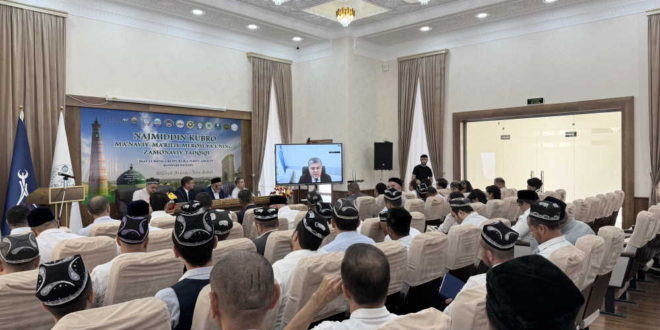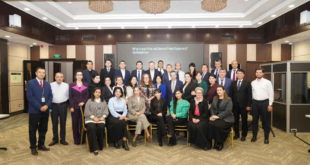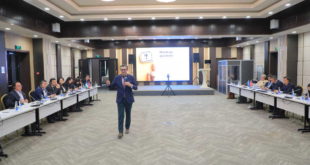On June 30, the Khorezm Mamun Academy hosted the national scientific-practical conference titled “The Spiritual and Educational Heritage of Najmuddin Kubra and Its Contemporary Research”.
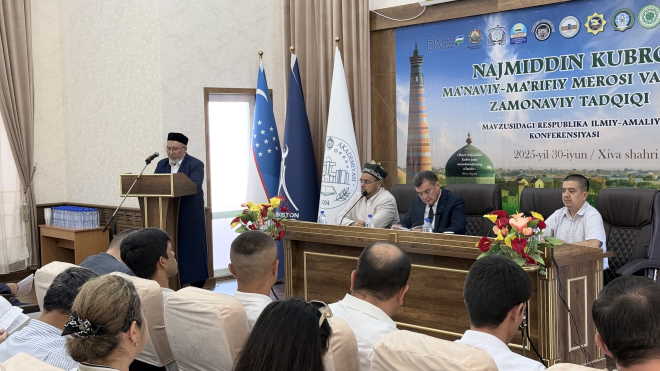
This conference was organized within the framework of the initiative put forward by the President of Uzbekistan to widely celebrate the 880th anniversary of Najmuddin Kubra’s birth. Its purpose was to conduct an in-depth study of Najmuddin Kubra’s scientific and spiritual legacy, analyze this heritage using modern research methodologies, and define its place within both national and universal value systems.
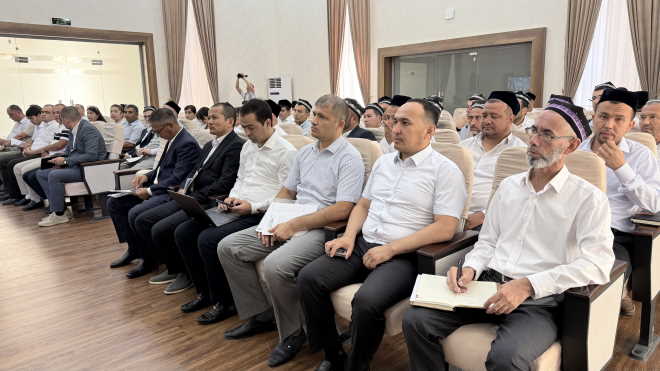
The event was organized in cooperation with the Committee for Religious Affairs, the Ministry of Higher Education, Science and Innovation, the Khorezm Regional Administration, the Khorezm Mamun Academy, the Muslim Board of Uzbekistan, the International Islamic Academy of Uzbekistan, the Center for Islamic Civilization, as well as the Imam Bukhari, Imam Termizi, and Imam Maturidi International Research Centers. It was held in both in-person and online formats via the ZOOM platform, attracting prominent Islamic scholars, historians, philosophers, representatives of religious educational institutions, research centers, experts, and young researchers from across the country.
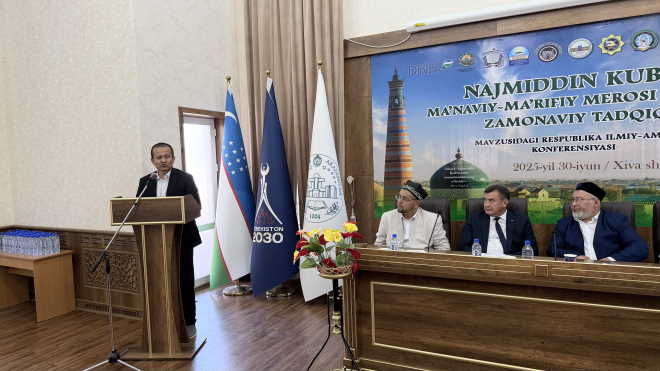
At the conference, Dr. Mekhrojiddin Amonov, Senior Researcher at the Imam Bukhari International Scientific Research Center and Doctor of Philosophy (PhD) in History, delivered a presentation entitled “The Kubrawiyya Order: Lineage and Genealogy.” In his speech, he provided detailed insights into the spread of the Kubrawiyya Sufi Order in the Zarafshan region during the 15th to 19th centuries, its contributions to the traditions of spirituality and enlightenment, and the continuity of the lineage of saints within this tradition. He emphasized the crucial role of the Kubrawiyya Order, known for its “strong master-disciple and father-son” genealogical ties, in preserving and transmitting Sufi knowledge from generation to generation. In particular, he presented valuable information about the activities of Sufis who lived in areas such as Karakul, Manqishloq, and Bukhara, who preserved and promoted the Kubrawiyya traditions.
The presentation also highlighted the deep connections between the Kubrawiyya and Naqshbandiyya Sufi orders. It sparked great interest among participants by referencing scholarly sources that describe how, in some cases, individuals were simultaneously involved in both orders.
“The Kubrawiyya Sufi tradition is not only a scientific and spiritual heritage but also serves as an inspirational source for shaping individuals in today’s society. The descendants of Kubrawiyya sheikhs who operated in the Zarafshan Valley continued the legacy of Sufi teachings, preserving the spiritual heritage through both written and practical means. Such continuity remains highly significant for modern education and enlightenment,” the speaker emphasized.
Within the framework of the conference, broad discussions were held on Najmuddin Kubra’s mystical and educational ideas, their relevance to addressing contemporary moral and spiritual challenges, historical sources related to his life and activities, the modern academic and practical significance of his works, the history and current state of the Kubrawiyya Order, and its influence on subsequent Sufi schools.
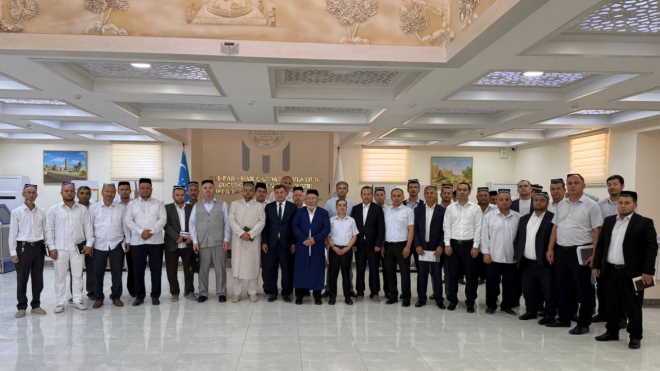
At the conclusion of the event, participants proposed recommendations to further deepen research on Najmuddin Kubra and his spiritual school, to widely promote the role of Sufi teachings in moral education, and to integrate this heritage into the educational system. It was decided to publish the conference proceedings and disseminate them to the broader public through the official platforms of the participating organizations.
Imam Bukhari International Scientific Research Center
Press Service
 Imom Buxoriy xalqaro ilmiy-tadqiqot markazi bukhari.uz
Imom Buxoriy xalqaro ilmiy-tadqiqot markazi bukhari.uz







